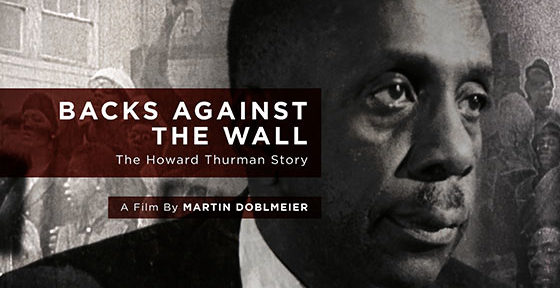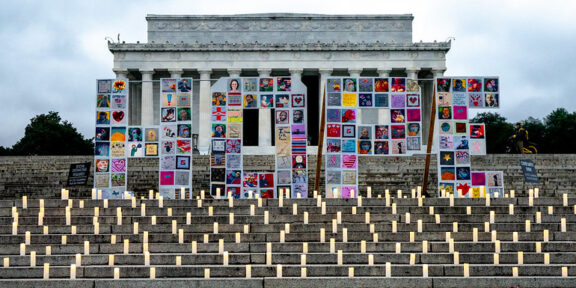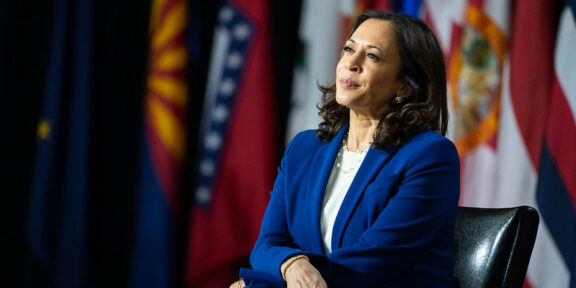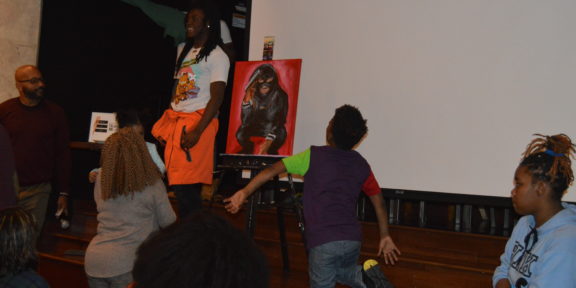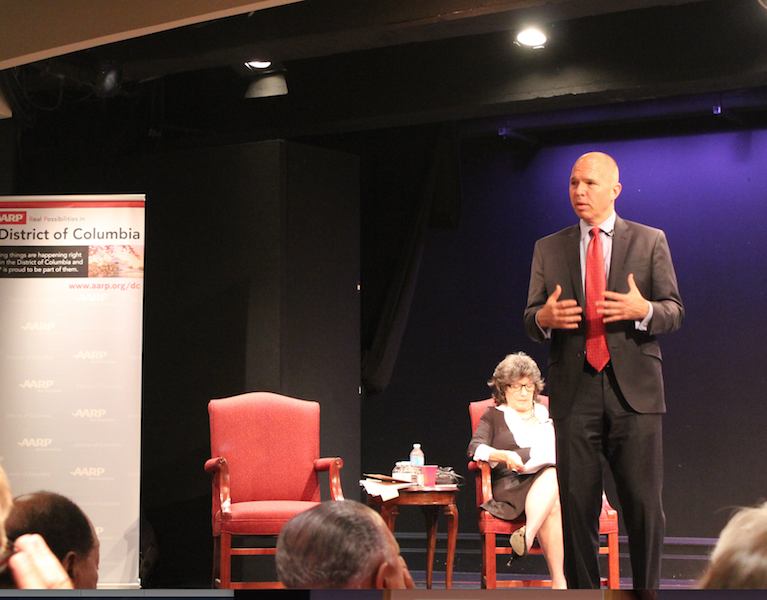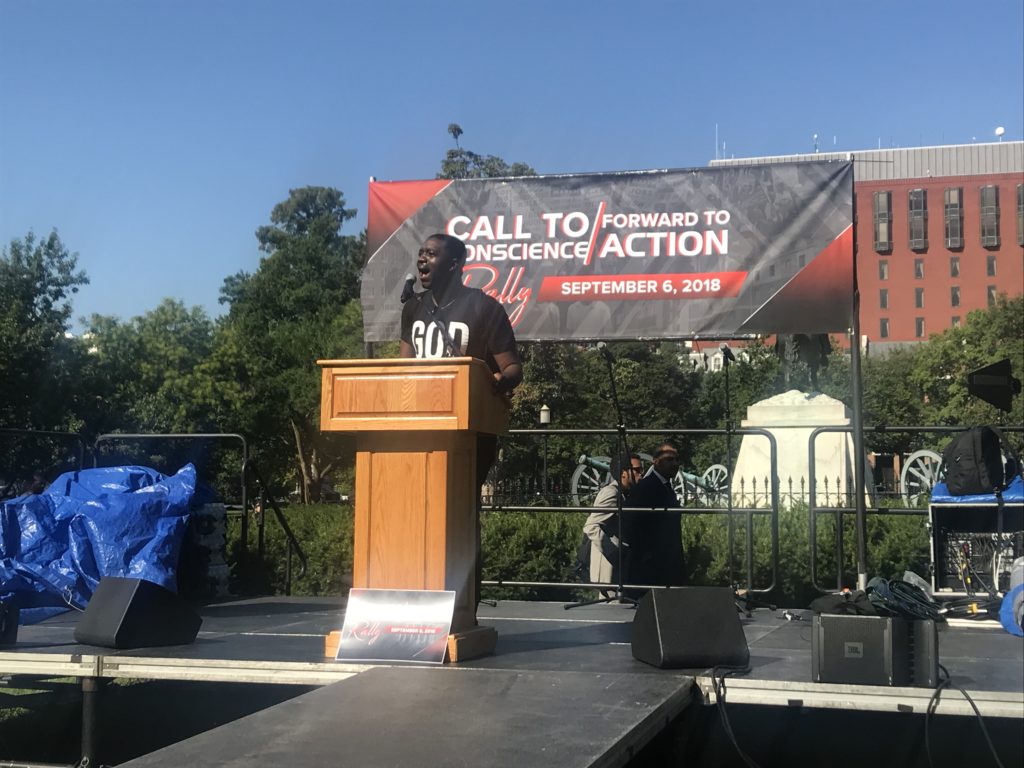 To an outsider, it might seem as though today’s politics are backed by the church, but what church is speaking? On Thursday morning, the African Methodist Episcopal (AME) Church organized a rally for the Black church in front of the White House to address certain concerns affecting the African American community.
To an outsider, it might seem as though today’s politics are backed by the church, but what church is speaking? On Thursday morning, the African Methodist Episcopal (AME) Church organized a rally for the Black church in front of the White House to address certain concerns affecting the African American community.
“The black church, historically, has been the voice of the community. It has been where most of the major accomplishments in the black community have begun. We think back to Martin Luther King and some of the others – it all began in the Black Church,” said Bishop W. James Thomas of Calvary Baptist Church in Dover, Delaware.
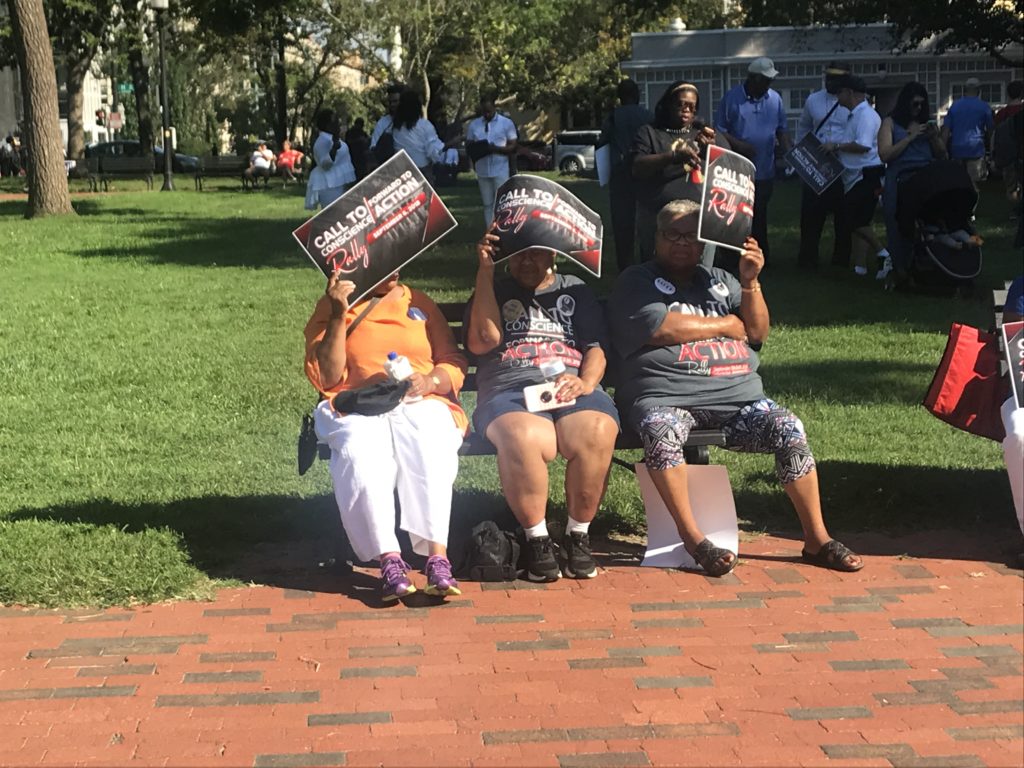
The goal of the rally was to not only unite the second district AME, which is comprised of churches across the District of Columbia, Maryland, Virginia, and North Carolina, but also the Black community as a whole behind these issues. These issues included criminal justice reform and economic equality.
“I know a lot of people say that the church is the most segregated organization in the land, however you feel better with your people. You can act better and work better with people who have gone through the same struggles as you,” said Sylvia Reed, the president of the Women’s Missionary Society at St. Paul AME Church in Columbus, Georgia. To further unite attendees, there was a wider variety of music. From live bands, to mainstream recordings, to hymnals.
Bishop Thomas believes it is crucial that the Black church takes time to address and include both the church and the Black community. When it comes to division within the church and the community, “most of those challenges are internal. I think we do have to come up with better ways to reach across different demographics. We have to come up with a better way to even address the concerns of our millennials,” said Thomas.
For many, like Arelis Davis, the wife of a bishop in the AME, next steps start at home. “First of all I am going to start with my family, and that is trying to inspire and motivate my grandchildren to know that when they get to the age of 18 they must register and vote…I would like for them to have a consciousness of the problems, of the ills of the society. And although they are one, one person can make a difference,” said Davis.

